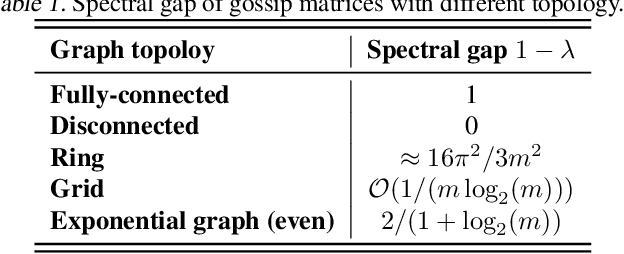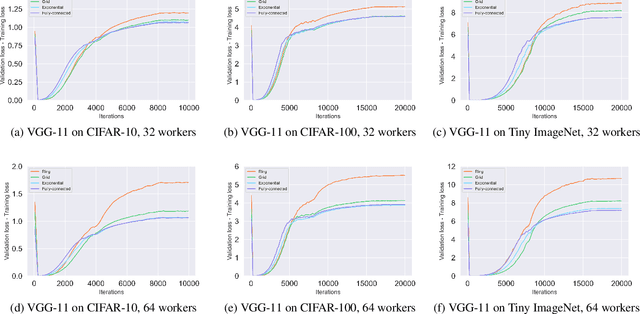Zhengyang Niu
Topology-aware Generalization of Decentralized SGD
Jun 28, 2022



Abstract:This paper studies the algorithmic stability and generalizability of decentralized stochastic gradient descent (D-SGD). We prove that the consensus model learned by D-SGD is $\mathcal{O}{(m/N+1/m+\lambda^2)}$-stable in expectation in the non-convex non-smooth setting, where $N$ is the total sample size of the whole system, $m$ is the worker number, and $1-\lambda$ is the spectral gap that measures the connectivity of the communication topology. These results then deliver an $\mathcal{O}{(1/N+{({(m^{-1}\lambda^2)}^{\frac{\alpha}{2}}+ m^{-\alpha})}/{N^{1-\frac{\alpha}{2}}})}$ in-average generalization bound, which is non-vacuous even when $\lambda$ is closed to $1$, in contrast to vacuous as suggested by existing literature on the projected version of D-SGD. Our theory indicates that the generalizability of D-SGD has a positive correlation with the spectral gap, and can explain why consensus control in initial training phase can ensure better generalization. Experiments of VGG-11 and ResNet-18 on CIFAR-10, CIFAR-100 and Tiny-ImageNet justify our theory. To our best knowledge, this is the first work on the topology-aware generalization of vanilla D-SGD. Code is available at https://github.com/Raiden-Zhu/Generalization-of-DSGD.
 Add to Chrome
Add to Chrome Add to Firefox
Add to Firefox Add to Edge
Add to Edge